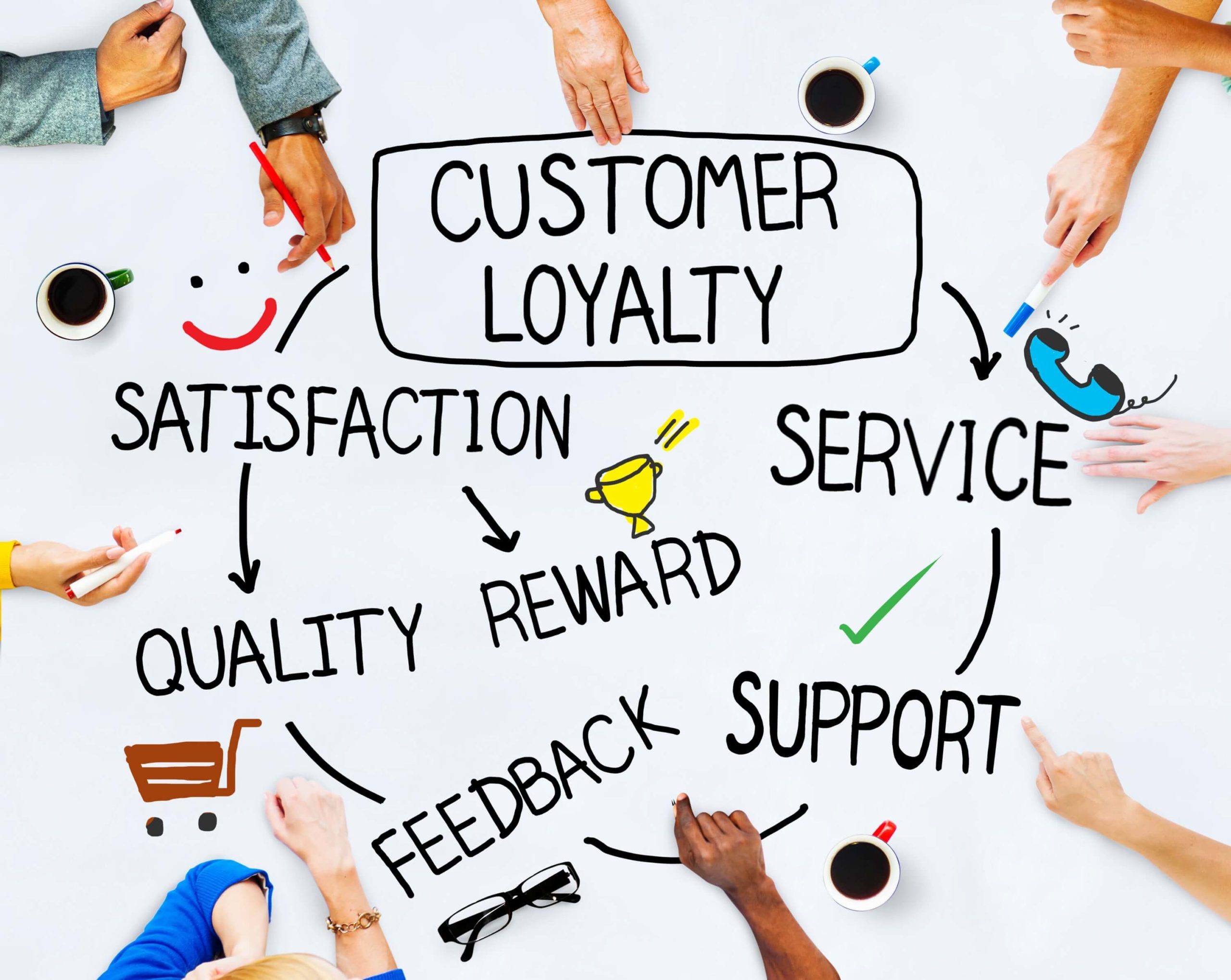As a follow-up to the last post about the Advantages of Customer Retention we will be focussing today on building customer loyalty and the advantages of having adequate customer retention strategies.
To help you on this subject, we have prepared this post so you can understand a little bit more about Customer Loyalty, how to implement a successful loyalty program in your company and the importance of customer support and to provide a top customer experience.
What is Customer Loyalty?
One of the main factors that characterize customer loyalty is consumers re-acquiring the services or products of a company with a certain frequency. Taking into account that this frequency is completely different depending on the products or services acquired (for example we can’t compare how frequent someone goes to a bakery to buy bread, to how frequent the same person goes to an auto repair shop, to get their car revised or fixed).
To really know if customers are loyalty to your brand is it necessary to have common sense and find out if, when they needed it, they went to your business or not?
Loyalty is making your service, product, and service so special that when your customers need it again, they will not think twice and will buy from you again.
The goal is to make existing customers spend and acquire your products, on a frequent basis, and thus resisting the offers of the competition. Therefore, it becomes imperative these days to think of customer retention strategies and implementing a customer loyalty program.
Why Investing in Customer Loyalty Strategies?
Proposing and promoting a product or service that meets the needs of customers is not everything.
Customers are increasingly involved in a network of social, psychological, environmental, political and technological elements that simultaneously interact to define their consumption decision.
By retaining loyal customers, the company will be captivating their preference, which automatically creates a relationship of trust, so that purchases of specific products are always made in your establishment. Besides, it also increases the tendency of people who are satisfied with the service to indicate them to their friends and family, and on social media raising the number of sales and profits.
How to Improve Customers Loyalty?
Do you want to improve the relationship between your business and consumers? Here are five tips on how to make customers more loyal to your business:
1 – Focus on the Customer – the Inverted Pyramid Theory.
In the inverted pyramid theory, the customer is at the top, and for him are destined the greatest efforts within a company. Below are the vendors and all those who deal directly with the customer and, finally, the leaders and managers, who offer the necessary support to sustain this system.
Here the focus is the customer, the goal of a business is to create value, not just products or services. Sellers, leaders, and managers stand as the pivot that underpins the entire service strategy. This means, in practice, a business culture of good service, which in addition to aiming at a quality relationship with each client, recognizes the value of tools such as SAC, ombudsman, marketing segmentation, market research, among others.
Having and maintaining good customer service, and listening to customers to understand how they want to be served is the first step to enticing them.
2 – Always Monitor your Customer Loyalty Marketing Activities.
Every action aimed at customer loyalty (whether it’s an email or social marketing campaign or the launch of exclusive content) can and should be monitored. Consider this process as a virtuous cycle: the more you monitor, the more you know your audience, and the greater your ability to create strategies for customer loyalty will be.
In order to do this, the company can install a system of consumer relations such as CRM (Customer Relationship Management) or use sign up worksheets that tell the dates and types of products that consumers have purchased.
3 – Give VIP Treatment for Loyal Customers.
If (according to recent studies) loyal customers can account for up to 65% of all of a company’s revenue, they deserve at least a differentiated treatment. To do this, invest in relationship actions such as unique newsletters, discount coupons and advantages of a loyalty club.
For these customers, it is worth anticipating product launches and offers and investing in personalized content. Remember that they’re the biggest capital of your company.
4 – Innovate in Communication.
With the wide availability of technologies, more and more customers are looking for information about a company and their products before making a purchase.
There are a number of options for communicating with customers in an innovative way, such as creating newsletters, applications, promotional or corporate magazines, newsletters, and pages on social networks. The important thing is to find a communication channel that can bring content and relevant information to consumers in a free and effective way.
5 – Have an Ombudsman for Customers / Measure their Satisfaction.
As already mentioned, customer loyalty involves the creation of a relationship that should not be unilateral, but rather bilateral, that is, where consumers also have the possibility to get in touch, give suggestions for improvements, make complaints, seek solutions to problems, to ask questions, among other things.
To keep customers loyal to your company you also need to measure how satisfied they are. This procedure can be done through the information gathered at the ombudsman’s office or by questionnaires applied on the company’s website or sent by e-mail. In this case, it is important to find out where the error is in order to fix it and use it to your advantage in the loyalty process.
You need to think of Customer Loyalty as a Competitive Differential.
As mentioned above, the primary goal of loyalty is to retain customers, preventing them from migrating to the competition, and also increasing the value of the business they provide.
As in personal relationships, fidelity is not bought; is achieved in the long term through attitudes that convey trust, respect, care, attention, and affection with each other.
We are loyal to our friends and companions because we build relationships based on emotions, so we should act the same way in our relationship with our customers if we expect them to be loyal to our business.












